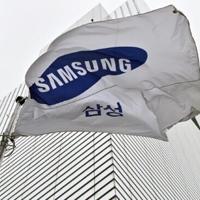Workers at South Korean tech giant Samsung started a three-day general strike concerning pay and benefits on Monday, according to the head of a union representing many employees who spoke to AFP. The union warned that the strike could impact memory chip production.
Samsung Electronics is known as the world’s largest memory chip maker and holds a significant portion of global high-end chip production.
Under the rain jackets and ribbons with the message “fight with solidarity,” thousands of workers gathered outside Samsung’s foundry and semiconductor factory in Hwaseong, Gyeonggi, which is an hour south of Seoul.
Since January, Samsung management has been in negotiations with the union, but they have failed to reach an agreement on benefits and a 5.1 percent pay raise offer from the company.
“The strike has officially started today,” said Son Woo-mok, the head of the National Samsung Electronics Union in a statement to AFP.
“Today’s general strike is just the beginning,” he added.
Addressing the workers, he instructed, “Please do not come to work until July 10th and do not receive any business calls.”
The union reported that around 5,200 people from factory facility, manufacturing, and development departments participated in the protest.
“Do they not think this will impact their production line?” asked Lee Hyun-kuk, vice president of the union.
With more than 30,000 members, the union represents over a fifth of Samsung’s total workforce and had announced the three-day general strike as a last resort after failed negotiations.
Following a one-day walkout in June, the first collective action at the company, the union emphasized the urgency of the strike, stating, “We are now at a critical crossroads,” and calling on the workers to act as one.
One union member expressed excitement, saying, “We’re making history.”
In March, workers rejected the offer of a 5.1 percent pay raise, citing demands for improvements to annual leave and transparent performance-based bonuses.
While Samsung declined to comment, business professor Kim Dae-jong at Sejong University mentioned the risk posed to Samsung management in the competitive chip market if the strike continues.
– Avoided unions –
Samsung Electronics had avoided unionization for nearly 50 years, using forceful tactics according to critics, until the formation of the first labor union in the late 2010s.
The company is a key subsidiary of Samsung Group, the largest family-controlled conglomerate in South Korea, which recently projected a significant increase in second-quarter operating profits driven by AI demand.
Semiconductors are crucial components used in various industries, and South Korea’s semiconductor exports hit a record high in March, accounting for a fifth of the country’s total exports.
hs-kjk/ceb/sco





